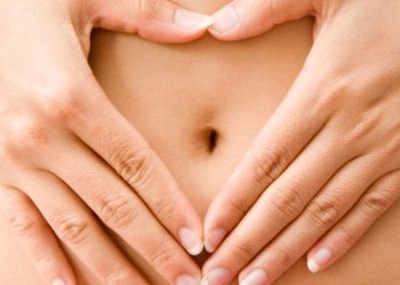Gut Reaction
I work a lot with digestive health including all kinds of symptoms from bloating to severe pain and nausea. It’s amazing what many people (and medical professionals) think is normal or just the way things are.
Let me warn you, like most naturopaths I’m very comfortable talking about toilet habits so if you’re perturbed by the topic maybe skip this post (or the final paragraphs). However I’ve been inspired to write about digestive health since it’s a very common treatment area for us and I recently watched an ABC programme, Catalyst, which was investigating the association between diet and gut health. They opened with ‘Could what you eat be affecting your health?’ Ah duh, I almost switched off in protest. But the programme was actually much more insightful since it was reporting research from the last decade which links the health of your gut flora (good and bad bacteria) to overall health and risk of chronic disease. The more pertinent question was ‘is gut health a risk marker of chronic disease’ especially prevalent auto-immune diseases, cancers and type 2 diabetes.
Those clever scientists have now worked out that most of us have over 1.5kg of bacteria living in our gut and yes, there are people out collecting poo from around the world and analysing it to see how each population varies. Problems arise if you have an imbalance of good and bad bacteria, the bad bugs can send the wrong messages to the immune system meaning eventually you get sick. It was no surprise that the standard western diet, high in processed foods and low in fibre wasn’t breeding lots of good bacteria.
Catalyst also ran their own experiment which involved a very fit young man, a gymnast, who on the outside looked like a specimen of good health. He was being compared to the reporter, a man almost twice his age. They were both fed a high fat high sugar meal – burger, soft drink and donut. Blood tests run to measure the effect, the results of the insulin response showed that the young man was on a fast track to diabetes! It was later revealed that in spite of being a professional athlete his diet consisted of mostly junk food whereas the reporter had a diet high in vegetables and fibre.
After a no junk food, high fibre diet for 3 months his insulin response improved and he was no longer at risk.
The health of your gut flora is essential and guess what, the good bugs don’t like processed foods. However the bad ones do and they promote inflammation in the body which is the precursor to chronic disease. Cut out processed foods and you reduce inflammation.
Following on from my last post on the Paleo diet, I should point out that maintaining gut microflora is a key reason why you must do this diet properly by eating lots of vegetables, including some tubers, and fermented foods which are naturally pre and probiotic. It is also why, generally speaking, I don’t recommend going strict Paleo for longer than 6 to 12 months without reassessment. In my experience the lack of resistant starch, a type of fibre which provides food for good bacteria and is found in legumes and grains, including potato and white rice. This is one of the limitations of a Paleo diet – not enough resistant starch can mean there’s not enough food for the bacteria. You can take all the probiotics in the world but if you don’t have the right food for them they’re not going to live long.
Of course it’s a sad reality the average diet has far too much refined and processed carbs, low quality protein and not enough fresh vegetables, fruit and fibrous foods. But people having a moderate healthy diet can also have digestive issues – why, because sometimes moderation isn’t enough. If your gut flora have been compromised by bad diet, gut infection or long term antibiotic use then you will need to be vigilant with diet and take the right supplements to get back to good gut health. And let us not forget that often digestive issues are multi factorial – there can be untreated food sensitivities, bad bacteria overgrowth, stomach acid and/or enzyme deficiency, stress or systemic inflammation creating a myriad of issues.
So taking a few probiotics may give some relief but won’t be the solution, and daily sugary probiotic drinks or yoghurts certainly aren’t!
The good news for anyone suffering from debilitating chronic inflammatory bowel diseases such as ulcerative colitis are offered some hope by the recent success of faecal transplant trials which are having remarkably positive effects on sufferers of ulcerative colitis.
Remember digestive symptoms are your body’s way of letting you know that there is some not quite right, so here’s what good looks like:
• No bloating
• Little or no flatulence
• Well formed bowel movements, that means cylindrical, smooth and without lots of undigested food
• Passing should be easy and without straining
• There should be no blood or mucus – both are a sign of inflammation in the gut, the presence of blood should always be investigated further
• Passing a bowel movement 1-2 times per day
• No extreme urgency, a little bit is fine as the nervous system needs to tell you when it’s time to ‘go’
• No pain in the stomach or lower abdomen
If you are suffering in silence or have exhausted what the medical professionals have to offer then consider seeing a good naturopath and learn the right way to make the most positive changes and address your symptoms with diet, lifestyle and quality supplements.

